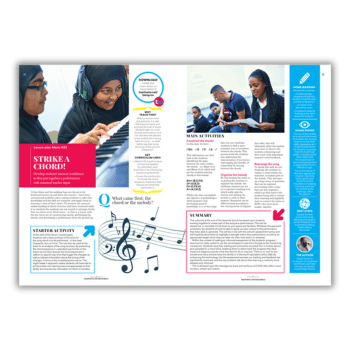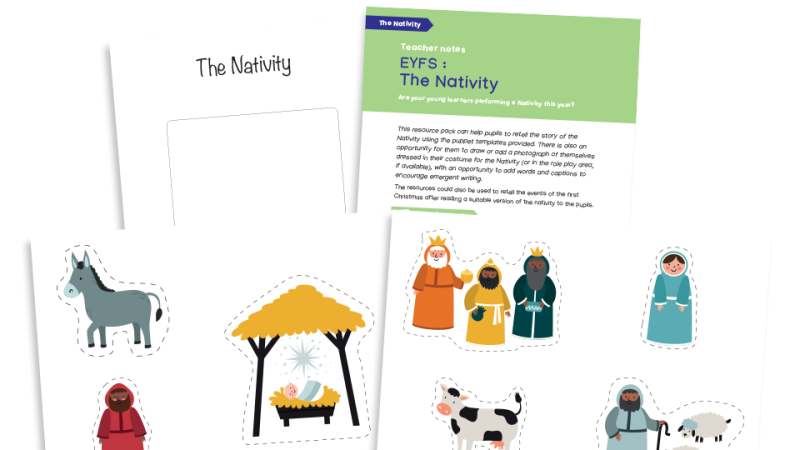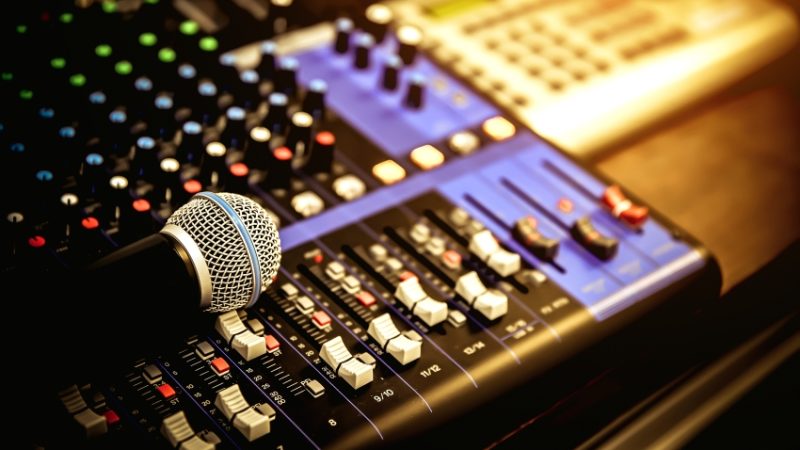Is Listening To Music A Help Or Hindrance With Study And Revision?

George Hammond-Hagan considers the evidence – and comes up with a theory of his own

Music plays an instrumental role (pun intended) our day-to-day lives for many of us; listening to the radio on the way to work, playing songs in the office, humming along in the shower or simply listening to music as a way to unwind in the evening.
Tracks are often playing in the background without you taking any notice. And what’s more, you find yourself singing along to the lyrics without even realising you knew them.
There’s no denying that music affects the brain; it stimulates our long term memory and affects our mood – and many people argue that it actually helps them concentrate, too.
For example, a study published in Psychology of Music in 2005 found that workers who listened to music displayed higher levels of productivity and motivation than those who didn’t. They surmised this was due to music improving people’s overall mood, and therefore increasing their enthusiasm for tasks.
Within the brain, we have both a conscious and unconscious attention system. Whilst the former allows us to focus on the task in hand, the unconscious system will distract our attention and hone in on anything our senses pick up on – for example, a notification that flashes up on our laptop or phone screen, or a colleague tapping on the desk while we’re trying to concentrate on an important document.
And this is where music can be effective; it’s a non-intrusive way of settling our unconscious and stopping us from becoming distracted.
The ‘Mozart Effect’ is another study that looked into music and learning. The research results indicated that when children listened to classical music (like Mozart) while performing tasks, it helped stimulate the brain and short-term memory performance, therefore boosting their intelligence.
This study led to more research and theories looking at why classical music in particular could have this effect, and whether the complex musical notes themselves mimicked patterns in the brain similar to those of solving puzzles.
Other research projects that followed concluded that listening to music does leads to improvement, but only temporarily, so doesn’t necessarily contribute to longer term intelligence.
Repeat business
It’s a complex picture; and there are a number of studies out there that dispute the significance that music has in the role of learning. There are arguments suggesting that music with lyrics can hinder short-term memory performance, or interfere and distract an individual trying to read or write.
When it comes to teaching and learning, I myself have fallen victim to the myth of music creating procrastination and disturbance. Time and time again I have told my son to turn off his music and ‘concentrate’ on his revision, despite him contesting that it does help him focus.
One study by researchers at the University of Wales Institute found that listening to music had no significant impact on task concentration and memory. The study tested different conditions, including a quiet environment in which music that participants both liked and disliked was played to them.
However, although the study concluded that the best performance was in a quiet environment, it also found that participants excelled when listening to a voice repeating the number three over and over. This suggests that rhythm and repetition could play an important part in engaging students in the learning process, allowing it to become an enjoyable experience rather than a laborious one.
Rhythm can have a significant impact on brain stimulation and this is certainly true when memorising facts and figures for exam situations. It’s not uncommon for students to write or recite facts over and over again so that the important knowledge becomes embedded in their long-term memory.
Our brains seek out patterns and associations, therefore, if we blend the facts learnt in the classroom with the rhythm and hooks of music, then surely we can create an engaging and effective study environment for students to learn, and retain information in the long-term memory?
Getting hooked
This brings me back to the point about my son, and whether listening to music when studying really is a distraction. Songs are catchy; we can memorise lyrics without even trying, and often without hearing the tune, so might this work for revision?
I tested the theory out. Rather than telling him to turn the music off, I took the instrumental of Fat Joe’s ‘Lean Back‘, and put facts from his physics syllabus on top of it, to fit with the beat of the song. The results speak for themselves – because after just one listen, my son was able to recall all the information back in his physics classroom.
Once a musical hook gets stuck in your head, you can recall it almost at will. It’s like that one annoying song that you really hate but it just sticks and the same lyric repeats in your head over and over again. Some studies go as far as suggesting that words alone are enough to trigger a link between memory and music, without the tune even playing.
Could it then be that, rather than listening to music while studying, the way to improve student performance and engagement is to in fact merge the two?
Every student has their own preferred way of working and learning, however, I think it’s fair to say that a majority enjoy listening to music, whether it’s pop, R&B, rock or rap. So while pens, books and note taking may work for some when studying, it doesn’t appeal to the masses, particularly not today’s digital natives.
Therefore using a range of music in combination with studying will appeal to a wider audience and create a more engaging, fun and enjoyable environment. And after all, when we’re enthusiastic about something, we naturally become more motivated.
The 21st century is an ever-evolving environment full of innovations and technology, and learning needs to mirror this. Being able to provide students with additional ways to study, that fit with their interests and lifestyle habits, surely means we will be able to stimulate students, encourage learning on the go – and have an overall positive impact on students’ learning.
George Hammond-Hagan has been involved in the music industry for years, and won an Ivor Novello award for Liberty X’s Just a Little. More recently, he has been working in education, looking at how music can aid study and revision. For more information, visit studytracks.education












